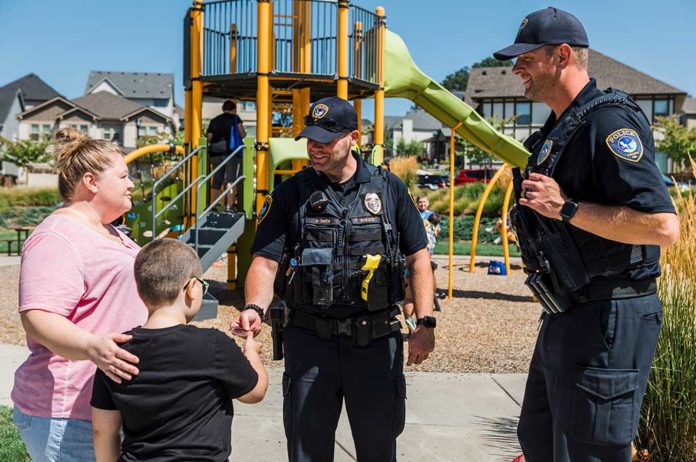
“Parents need to be involved in their children’s digital lives,” says School Resource Officer (SRO) Jon Moehring. “This includes being aware of the people they communicate with online, and the apps they use.”
Moehring and SRO Brian Imus find that some parents are not aware of the apps their kids are using, such as Snapchat or Instagram, and how they are using those apps. Parents may also be surprised that even elementary-aged students may receive or send inappropriate photos to friends. When kids spend a significant amount of time on social media, peers, including the people they meet online, can significantly influence their decision-making and exposure to risk. Parents can counter this by educating themselves about the apps their kids use, as well as trends and safety concerns online, along with providing guidance and oversight.
 Both SRO Imus and Moehring recommend that parents monitor their kids’ online activities regularly, maintaining unlimited access, or use apps designed to track activity. For example, if your daughter uses Snapchat and a photo vault app, she would need to grant access to both as a condition of being able to use a phone or electronic device. Monitoring can also ensure that they are not forming inappropriate relationships, being bullied, or bullying others.
Both SRO Imus and Moehring recommend that parents monitor their kids’ online activities regularly, maintaining unlimited access, or use apps designed to track activity. For example, if your daughter uses Snapchat and a photo vault app, she would need to grant access to both as a condition of being able to use a phone or electronic device. Monitoring can also ensure that they are not forming inappropriate relationships, being bullied, or bullying others.
Moehring and Imus understand that parents want to respect their children’s privacy and may feel uncomfortable asking for access to phones and electronic devices. “Because their interactions online are public anyway and can be readily shared with others, there should be little expectation of privacy,” says Moehring. As children age and demonstrate that they are responsible in their online activities and are aware of the risks and consequences, parents may decide to allow more freedom over time.
Because of their exposure to risk, proactive conversations are necessary to ensure kids’ safety online. Ongoing discussions may include:
• Friending only people they have met face to face. Because it is easy to impersonate another person online, they should limit who has access to their posts, profiles, and information.
• Limiting information shared online. Personal information, such as full name, address, phone numbers, medical info, birthdates, social security numbers, should be protected. Screen names can reveal a lot of information, so they should be careful what they choose.
• Waiting to post info about vacations until after the family returns home.
• Being careful about posting photos that may identify where they live or hang out.
• Using privacy settings on social media apps, so their posts and profile are private.
• Educating them on the consequences of sharing too much online. Once they post, the information is out there and no longer within their control. Sharing photos, using inappropriate language, and other information may impact their reputation with college recruiters and employers. Additionally, sharing an inappropriate photo of others may be violating the law.
• Being careful about who they are talking to online. If they only have interacted with the person online, they may not really know who they are talking to and should not meet up with them.
• Covering cybersecurity basics such as not clicking on links from people they don’t know.
“Don’t give into pressure if you don’t feel your child is old enough to have a phone or be on social media,” advises SRO Imus. “You can purchase a phone that only allows texting and phone calls.” Additionally, many cell phone carriers provide parental controls that allow you to restrict what your child can do on their phone based on your comfort level. Whatever your intervention, being involved and aware of what your kid is doing online ensures that they are safer online.
Tigard Police Open House
On Saturday, September 21st from 10 a.m. to 1 p.m., the Tigard Police Department will host an Open House! Please join us for this family-friendly for an insider’s view of your police department including:
- Demonstrations of the various tools and equipment officers use on the job
- Police vehicles that kids can explore
- Tours of the police facility
- Motorcycle demonstrations by our Traffic Safety Officers
- Tigard Police K-9s
- Ice cream





















